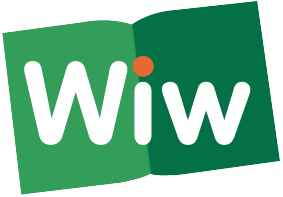 People are busy these days – we all know that. Just one look at our own emails boxes is a good reminder of what the people receiving our messages are experiencing.
People are busy these days – we all know that. Just one look at our own emails boxes is a good reminder of what the people receiving our messages are experiencing.
- The average office employee receives 122 emails daily.
- We’re all processing increasing volumes of data. There were 4.4 zettabytes of data in 2013. Today, 2.5 exabytes of new data are produced daily.
- Employees are bombarded with not just more information, but also disconnected information: bits of information and details that may (or may not) be connected to other data they’re having to absorb at light speed.
- Given our increasingly digital lifestyle, the average adult has about an 8-second attention span (literally) – or about that of a goldfish’s.
So naturally, the advice we’re all given is to write emails and other content that is concise, leading with the most important points first, assuming that your reader will likely quit reading, but also giving them “visual re-entry points” like headings to allow for skimmers to jump back into your material.
But some people think that writing concisely means writing like a robot so let’s clear that up: You can write concisely and not sound like a robot. Here are my seven tips for writing concisely and sounding like (your best) human:
- Who’s your audience? I used to have a client that dealt with bad news better in the morning, before all the other stresses of the day had built up. Take the time to think about who your target audience is and what it is you’re saying. Really think about who’s receiving your email. Put yourself in their shoes. How will they “hear” what you’re saying?
- Mind your manners. Your mother was right. Please and thank you can get you a lot of goodwill.
- Don’t forget the basics. While it might seem like “fluff,” simple things like greetings and closings really aren’t old-fashioned. They’re the niceties in written communication that people still expect.
- Be careful with capitalization. Remember – all caps means shouting. If you’re trying to draw attention to certain text or visually organize your content, consider using a larger font size, using bold, underlining, italicizing or yellow highlighting.
- Short doesn’t mean bland. Just because you’re trying to write more concisely doesn’t mean you should eliminate personality. In the right circumstances, a friendly little smiley face can convey the right dose of goodwill. ;-)
- Don’t forget the personal touch. Consider adding a sentence at the beginning or end of the note wishing the reader a good weekend or holiday or commenting on a success they had at work (etc.). Some readers look for the personal connection – especially if the writer is asking them to DO something.
- Watch your “tone.” We’ve all had to counsel that young teenager or young employee about their tone of voice: it isn’t their specific words that are getting them in trouble – it’s their tone. However, in the written context, each word you choose conveys or implies a “tone.” For example, consider the difference among the words: said, told, implied, demanded, insisted, yelled, requested. Each of these words are verbs that meant someone “said” something: the difference is in the “how” they said it. Take time to consider each of the words you’re choosing: are they conveying the “tone” you’re intending?
Even though we are expected to be moving faster every day, we are still human and want to work with other humans, not robots. so get rid of anything (words, sentences, paragraphs, entire documents) that are not necessary but don’t forget to humanize your writing. 10-4?
Want to learn more about being a better writer or editor? Check out our books (Amazon) and courses.
about any of our products or services.
 Visit us
San Francisco Bay Area
Visit us
San Francisco Bay Area
 Mail us
natasha@adcomdesigns.com
Mail us
natasha@adcomdesigns.com
 Call us
(510) 655-6477
Call us
(510) 655-6477

